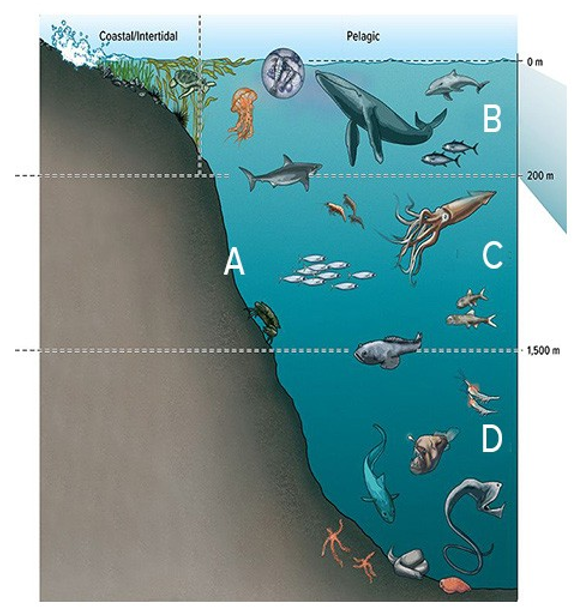In the diagram below, C is the

A) hadal zone.
B) mesopelagic zone.
C) epipelagic zone.
D) benthic zone.
B) mesopelagic zone.
You might also like to view...
Which of the following is NOT one of the immigrant groups arriving in Japan?
A) Chinese men working in construction B) men and women from Russia working as educators C) Thai and Filipina women working as entertainers or prostitutes D) Brazilians of Japanese ancestry returning home for high wages E) men from South Asia working in construction
The most likely time for a tornado during the day is at
A. 6 a.m. B. 6 p.m. C. midnight when temperatures are coolest. D. noon when the sun is highest in the sky.
Electromagnetic Radiation
A. is visible in all its forms. B. is composed entirely of waves. C. is composed of interacting electrical and magnetic fields. D. radiates out in confined planes or straight lines.
Requirements for a hurricane to develop include all but which of the following?
A. seawater with a temperature of at least 27°C in the upper 60 m of the ocean B. The storm must be at least 200 km from the equator. C. weak upper-level winds, preferably blowing in the same direction the developing storm is moving D. Air must be unstable, warm, and humid.